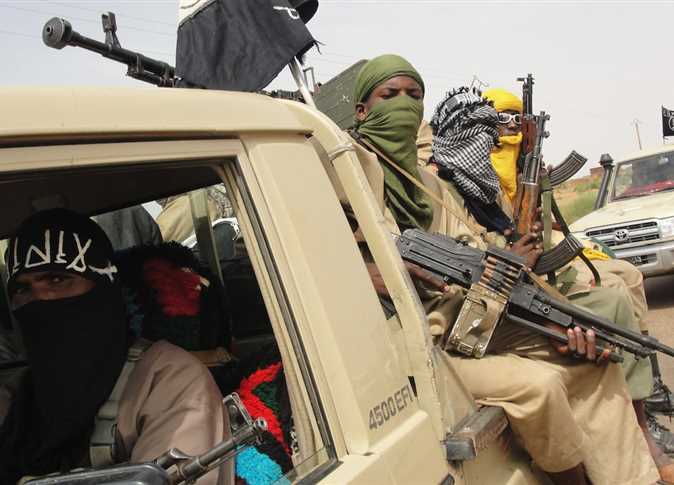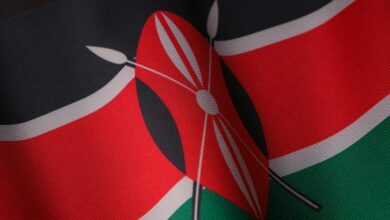
The terrorist organization “Jamaat Nusrat al-Islam wal-Muslimi” (JNIM), affiliated with Al-Qaeda, has claimed responsibility for the kidnapping of three Egyptian citizens in western Mali, according to announcements made on its media platforms.
The group had initially declared the detention of two Egyptians a few days prior, and later confirmed the kidnapping of a third while he was traveling on the Ségou–Bamako road east of the Malian capital.
Massive ransom and claims of Bamako collaboration
In an official statement released through its propaganda channels, the group identified the third hostage as an Egyptian businessman.
It accused the businessman of collaborating with Malian authorities and demanded a hefty ransom of five million dollars for the release of the three captives.
The JNIM also described the operation as a “blow to the supporters of the Russian occupation,” in a clear reference to the cooperation between the Malian government and the Russian Africa Corps forces.
As of now, no official response has been issued by the Malian government or the Egyptian embassy in Bamako regarding the incident.
However, diplomatic sources confirmed that they have received formal notification of the event, adding that authorities have commenced field search and reconnaissance operations in the areas surrounding the kidnapping site.
A surge in kidnappings
This latest operation is part of a broad escalation adopted by the JNIM against the Bamako government.
The group is attempting to impose a strangling economic blockade by cutting off key roads leading to the capital. This has already led to a severe fuel shortage, the closure of schools and universities, and a price increase for basic commodities by 200 percent.
The JNIM controls approximately 80 percent of gold production in the Kayes region, an area that has witnessed a rise in incidents of truck burning and driver kidnappings, according to field reports.
It is believed that the group relies on these activities to finance its military and logistical operations.
Recently, Mali has also seen a series of kidnappings targeting foreigners working on development projects and in mining areas. Incidents include:
- Five Indian nationals abducted while working on an electricity project near a bridge west of Bamako.
- Four Chinese nationals have been abducted in the Kayes region since July.
- One Iranian national was kidnapped in September.
Neighboring Niger also saw the kidnapping of an American missionary in October, raising the total number of kidnappings of foreign nationals in the Sahel region to more than 23 cases this year.
JNIM’s expansion, organizational structure, and international response
This escalation has triggered a wave of international warnings, prompting the US, France, and Germany to urge their citizens to leave Mali as quickly as possible and to reduce the operations of their respective embassies there.
Analysts warn that the continuation of these attacks could threaten the survival of the Bamako government, especially given the limited Russian support it currently relies upon.
According to assessments from the Soufan Center intelligence organization, the group now controls vast areas of northern and western Mali.
The JNIM is a coalition of several armed factions that announced their unification in March 2017. Its most prominent constituents include:
- Ansar Dine
- Al-Mourabitoun
- Macina Liberation Front
- Al-Qaeda in the Islamic Maghreb
The coalition is led by the militant Tuareg leader Iyad Ag Ghaly, who has maintained his allegiance to Al-Qaeda and sought to expand the influence of jihadist groups in the Sahel region.
Goals of the movement
The group embraces the Jihadi Salafi ideology inspired by Al-Qaeda. Its primary goals are to establish an Islamic state in West Africa and expel the Western presence from the region.
The JNIM exploits ethnic tensions and poverty in northern and central Mali to recruit new members, financing itself through ransom payments, imposing taxes, and smuggling weapons, drugs, and people.

International classification and impact
- The US classified the group as a Foreign Terrorist Organization in 2018, and also added its leader, Iyad Ag Ghaly, to its list of Specially Designated Global Terrorists.
- The Australian National Security reports indicate that the group now poses a wide-ranging threat across West Africa, where it is actively contending with ISIS for control over territory and resources. This rivalry has led to hundreds of clashes and the death of over 1,100 fighters since 2019.
- Amnesty International has called for strengthened regional cooperation to confront this growing threat, warning that the Sahel region stands on the brink of a humanitarian disaster, with the number of internally displaced persons surpassing 440,000 due to the escalating violence and insecurity.




